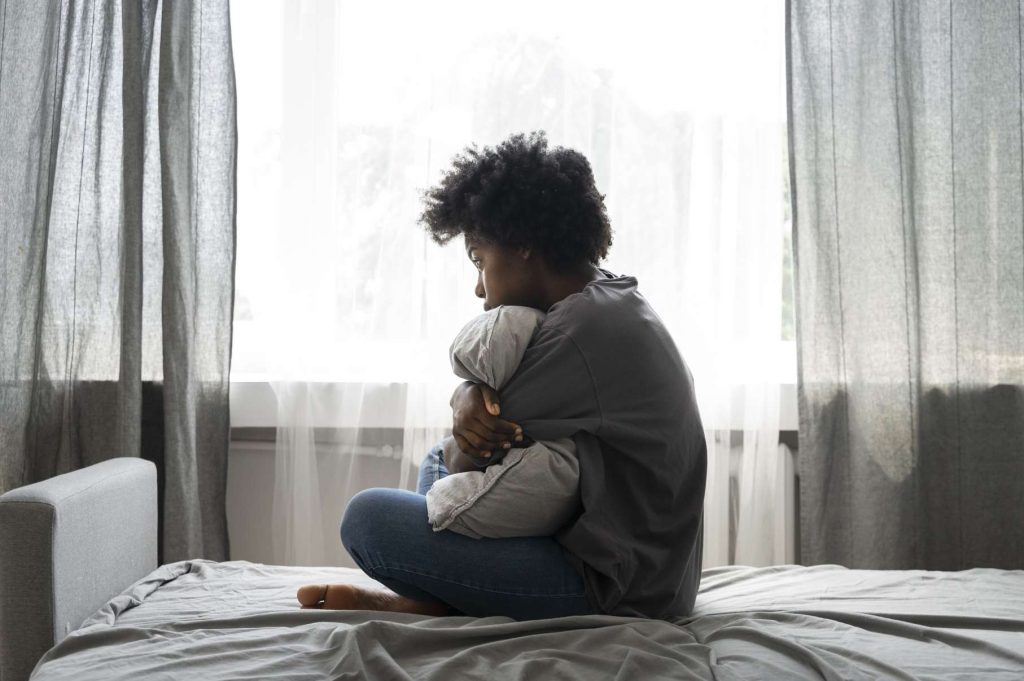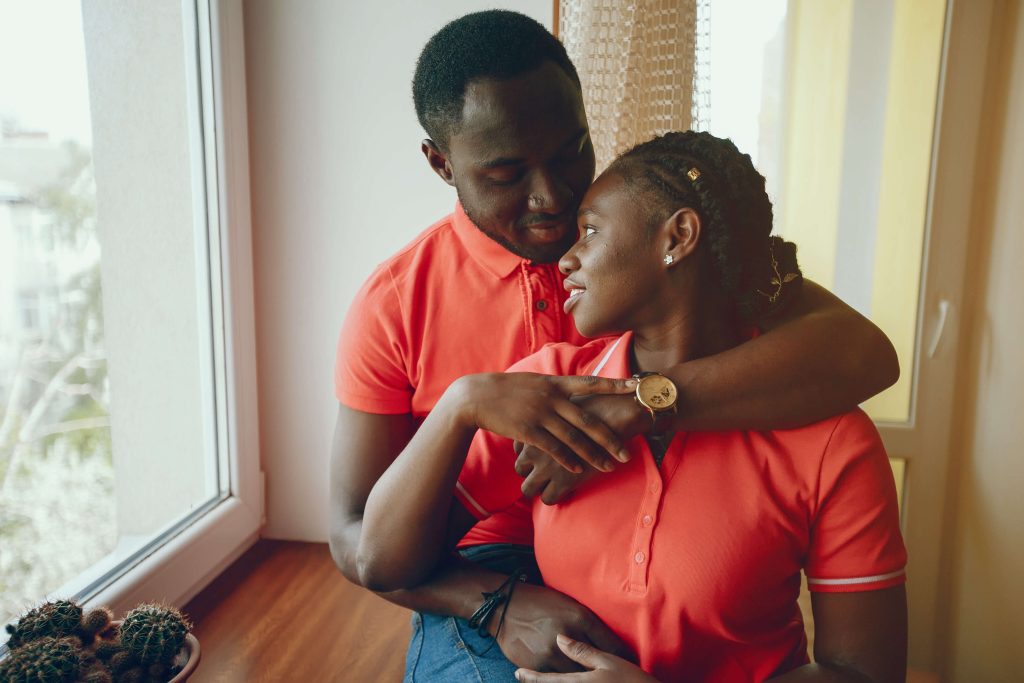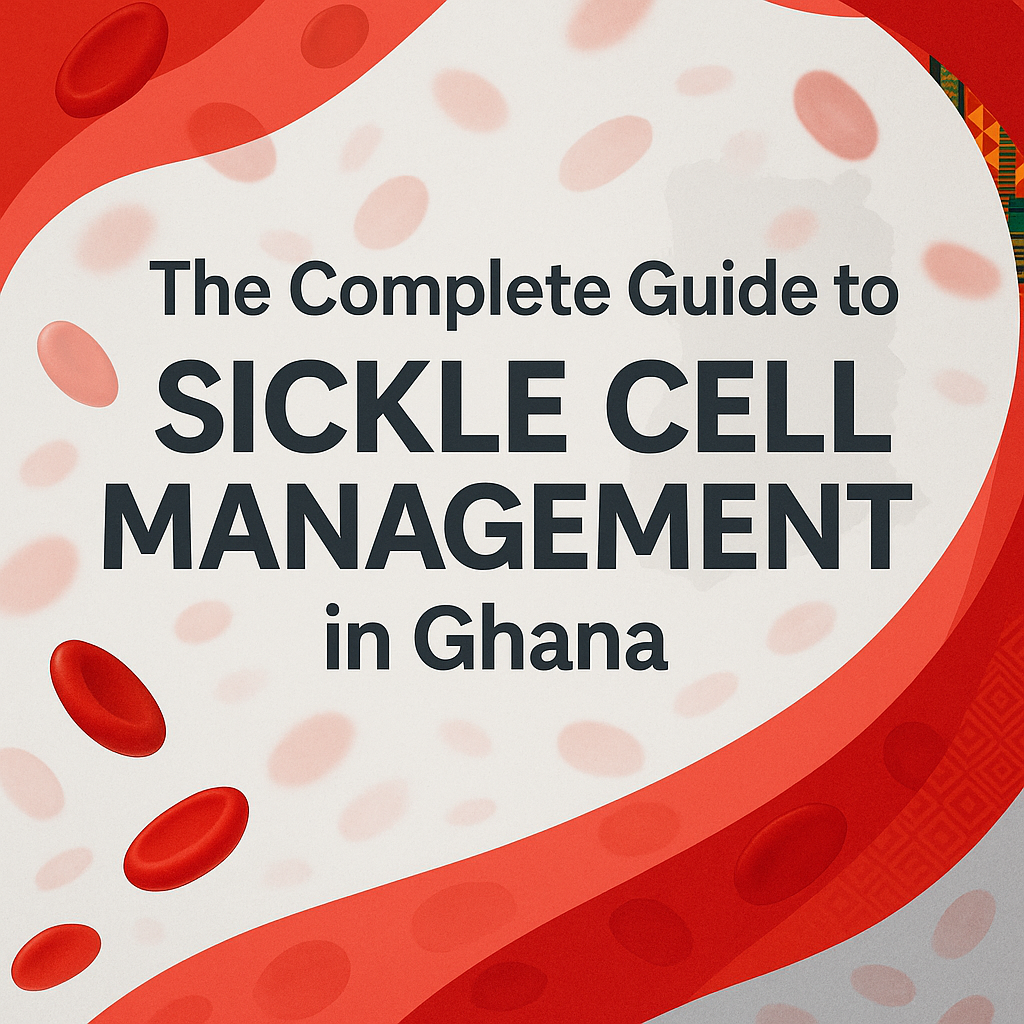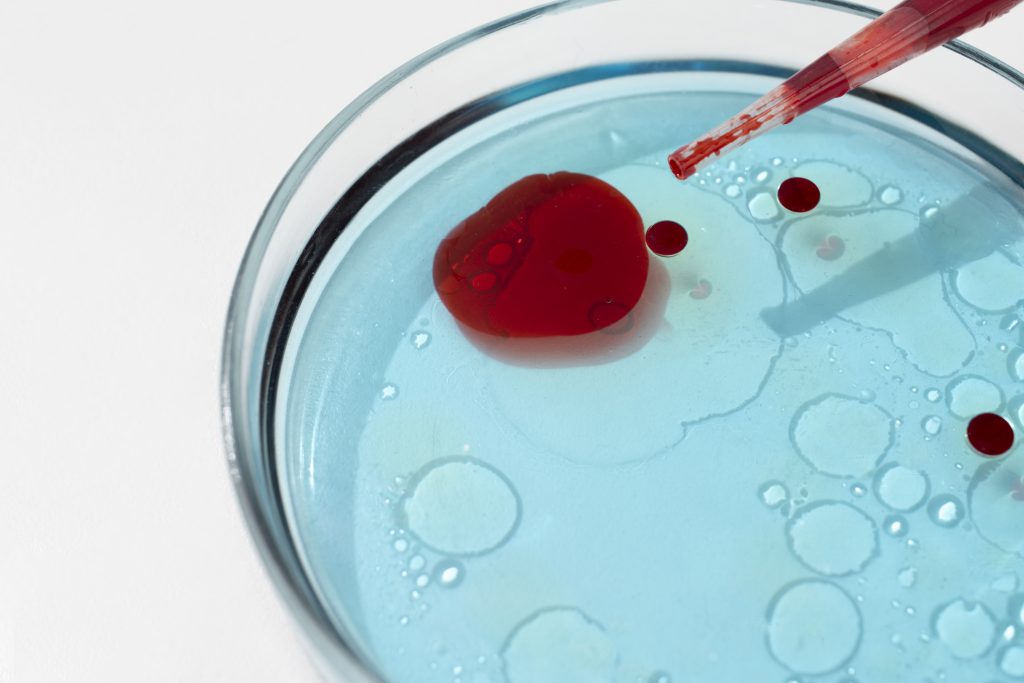I know of a friend who married a young gentleman. Their wedding photos? Bred envy in everyone. But you see, they didn’t think twice about blood groups or genotypes. All they knew was: “God will see us through.”
Their first child was born with sickle cell disease. The hospital visits started early. Fevers. Pain crises. Blood transfusions. They prayed. They hoped. They assumed it was just a one-time challenge… something love could conquer. But then the second child came. And the same diagnosis followed.
The husband? He was already slipping away. The endless days witnessing the pain of his children had drained him. One day, he simply walked out, and never returned.
Today, that friend of mine is raising both children alone. Two kids with sickle cell. Two hearts constantly in pain. And one mother who carries it all. This real-life story? it’s a common one, especially in Ghana, where love often rushes faster than medical knowledge.
If you’ve ever asked: “Which genotypes should never marry?” “Can AS marry AS?” “Which genotype is safest for marriage?” This article is for you. And it might just save your future, or a friend’s.
Why Genotype Compatibility in Marriage Even Matters
Your genotype is basically your genetic makeup—the type of blood genes you carry. The most common ones when it comes to marriage are AA, AS, and SS.
- AA is generally safe.
- AS means you carry the sickle cell trait but don’t have the disease.
- SS means you have sickle cell disease—a painful and life-threatening condition.
Now here’s where it gets real: When two people with an AS genotype have a baby, there’s a 1 in 4 chance the child will have SS. That’s sickle cell disease.
And sickle cell isn’t just a health condition—it’s a lifetime of pain. Constant hospital visits. High medical bills. Missed school. Missed work. Sleepless nights. And for many families, deep emotional and financial stress.

Some children don’t even make it to adulthood. Some marriages don’t survive the weight of it either.
That’s why this isn’t just about love, it’s about the future you’re building. The lives you’re responsible for. The quiet decisions that echo through generations.
And it all starts with one simple thing: knowing who you’re compatible with.
The Genotype Chart: Who Can and Can’t Marry
If you’re wondering whether you and your partner are a match beyond just feelings, this chart will help.
Here’s a simple guide to which genotypes are safe for marriage, and which ones come with serious risks:
| Genotype 1 | Genotype 2 | Safe for Marriage? | Risk |
| AA | AA | ✅ Safe | None |
| AA | AS | ✅ Safe | 50% chance of AS children |
| AS | AS | ❌ Not Safe | 25% chance of SS (sickle cell) |
| AS | SS | ❌ High Risk | 50% chance of SS |
| SS | SS | ❌ Very High Risk | 100% chance of SS children |
Real Consequences: What Happens If AS Marries AS?
When two people with the AS genotype marry, it’s not just a number—it’s a potentially harsh reality for their children and family.

The Risk in Numbers
In Ghana, about 25% of the population carry the sickle cell trait (AS) and roughly 2% of newborns have full-blown sickle cell disease (SS).
That means if two AS individuals have a child, there’s a 1 in 4 chance with every pregnancy that the child will be born with SS, and the stakes are incredibly high.
What SS Means for Children
- Frequent pain crises when misshapen blood cells block circulation. These can happen several times a year, especially in early childhood.
- Up to 46% of Ghanaian children experience their first crisis by age four.
- Many kids face school disruptions, stigma, and emotional stress.
- Life expectancy is reduced: in Sub‑Saharan Africa, 50–90% of children with SS sadly don’t live past age five.
The Ripple Effect on Families
- Near Kenya Project in Accra shows 2% of all babies are born with SS each year—about 14,000 children nationwide.
- Parents report constant hospital visits, high medication costs, and taking time off work, often without full insurance coverage.
- Emotional burnout is common. Many moms describe the relentless care and stress as overwhelming.
“Voices from the Frontlines”
- A qualitative study in Accra quotes one parent:“I end up spending all my money on his medications and admissions. That has indeed affected my progress in life”.
- Ghana’s Deputy Health Minister once warned: “Know the sickle cell status of your marriage partner… pain, anguish, and cost of medications… important to exercise restraint in expressing love…”
This isn’t abstract biology, it’s daily life. Every missed school day, every hospital visit, every grief-stricken parent matters. When two AS people have kids, they’re playing the genetic lottery… and often losing.
Top 3 Common Myths and Mistakes Couples Make

When it comes to love and marriage, emotions often speak louder than reason. But when genotype is involved, the stakes are too high for wishful thinking.
Let’s talk about the three most common things people say, and why they’re risky.
“Love will conquer all.”
It’s a beautiful thought. But love doesn’t stop a child from screaming in pain during a sickle cell crisis. It doesn’t pay for emergency hospital visits. It doesn’t erase the guilt of watching your child suffer because no one wanted to talk about genotype.
Love is powerful, but it needs wisdom to build a future that won’t break your heart.
“We’ll pray about it.”
Faith is essential. But faith doesn’t replace medical facts—it works best with knowledge, not against it. Even the Bible says, “My people perish for lack of knowledge.”
Prayer is powerful, but God also gave us doctors, science, and insight so we can make informed decisions. Prayer without wisdom is not faith—it’s a gamble.
Pray, yes. But also check your genotype, and make a sound decision.
“We’ll do IVF or gene editing later.”
That sounds good, on paper. But here’s the thing:
- IVF with genetic screening is expensive, often costing tens of thousands of cedis.
- It’s not widely available in Ghana.
- There’s no guarantee it will work the way you expect.
And let’s be honest: most couples saying this have no real plan or budget for it. It’s often just something we say to silence the fear.
Undoubtedly, technology can help, but it’s not an excuse to ignore reality now. Don’t let myths write your story. Make a decision that your future self—and your children—will thank you for.
What To Do Instead: Steps for Genotype-Aware Marriage Planning
So what should you do, especially if you’re in love or thinking about dating someone seriously?
Here’s the honest truth: genotype testing should come before the emotions run deep. Why? Because love is easier to walk away from before you’re emotionally invested. But after the feelings, the plans, the promises? It’s much harder to let go—even when you know the risk.
Here’s a simple guide to protect your heart and your future:
1. Take the test early—before dating, if possible
Don’t wait until you’re months or years into a relationship to find out you’re not genetically compatible. Make it a basic part of your personal health checklist, just like checking your blood group or STI status.
It saves you time, emotional energy, and in some cases, your children’s lives.
2. Talk to a genetic counselor or doctor
They’ll help you understand your test results and what they mean for your future. It’s not enough to know you’re AS—understanding what that means and the real-life impact of pairing with another AS or SS partner is just as important.
3. Don’t fall deep until you know your match
If you’re AS or SS, always ask early. It’s not rude—it’s wise. There’s no point building castles in the sky when your foundation is cracked. Compatibility is more than vibes—it’s also about biology.
4. Get tested at a trusted clinic or lab
If you’re in Ghana, here are a few reputable places you can go:
- Korle-Bu Teaching Hospital, Accra
- Komfo Anokye Teaching Hospital, Kumasi
- Medlab Ghana (Accra, Kumasi, Takoradi)
- Lans Medical Laboratory
Final Word: Love Isn’t Enough—But Knowledge Is Power
Love is beautiful. It’s powerful. It brings people together and builds families. But when it comes to genotype and marriage, love alone is not enough.
It can’t protect your child from the pain of sickle cell. It can’t carry the weight of hospital bills, emergency visits, or emotional breakdowns. And it definitely can’t undo a decision made in ignorance.
But you know what can make the difference? Knowledge.
Knowing your genotype—and your partner’s—gives you the power to choose wisely: choose what your future will look like… 5, 10, 20 years from now. It’s about the lives of the children who will come from your love.
So if you truly care about the person you love, protect them. Have the conversation. Get tested. Make informed choices.
That’s what responsible love looks like.



